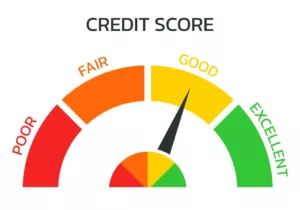When considering purchasing your first home, there is often one important obstacle that can affect getting your dream home: your credit score. This number is crucial because it helps decide the interest rate for your mortgage. Having a higher credit score can lead to better mortgage rates, possibly saving you thousands of dollars.
In this guide, we will explore the steps you can take to boost your credit and make it easier to get a more affordable mortgage.

Understanding Your Credit Score
Your credit score is a number that shows how trustworthy you are with borrowing money. This score ranges from poor to excellent. Lenders use this score to assess the risk of loaning money to you. The key factors influencing your score include:
- Payment history
- Credit usage
- Length of credit history
- Types of credit
- New credit
You should begin by checking your credit report and score to learn where you currently stand.
Importance of Good Credit in Mortgage Rates
The relationship between your credit score and your mortgage rate is direct. The higher your score, the lower your interest rate is likely to be. Even a small change in interest rates can make a big difference in how much you pay each month for your mortgage and loan costs.
Strategies to Boost Your Credit Score
- Paying bills on time and in full. On-time payments positively impact your payment history, which is the most significant factor in your overall score.
- Lowering credit card balances. By paying bills and reducing your credit card balances, you improve your credit usage ratio. This ratio is another crucial factor in credit scoring.
- Avoiding opening new credit accounts. Although it might be tempting, opening new credit accounts can temporarily lower your score. Avoid unnecessary credit inquiries to maintain a stable number.
- Checking for and disputing errors. By regularly reviewing your credit report for errors, you will be able to promptly dispute inaccuracies. Correcting these errors can positively impact your score.
- Use different types of credit. Having a mix of credit types, such as credit cards, installment loans, and retail accounts, can positively influence your credit score. However, only open accounts you need and can manage responsibly.
- Keep older accounts open. The length of your credit history is a factor in your credit score. Keep older accounts open, even if you’re not actively using them, to maintain a longer credit history.
- Be mindful of credit utilization. This means looking at how much of your credit card balance you are using compared to your credit limit. Aim to keep this ratio below 30% to positively impact your score.
- Negotiate with creditors. If you’re facing challenges, consider negotiating with your creditors for more manageable payment terms. Some creditors may be willing to work with you to avoid missed payments.
- Seek professional advice if needed. If you’re struggling with credit issues, consider seeking advice from a trusted credit counseling agency. They can provide guidance on managing debt and improving your credit.

Remember that improving your credit score is a gradual process. It requires patience and consistent effort. When you are thinking of buying a home, think about how your score may affect your future mortgage. However, if you plan ahead and consider these steps, it is possible that you could raise your credit score in time to get a good monthly payment and interest rate.
Check out our blog for more helpful home tips.
